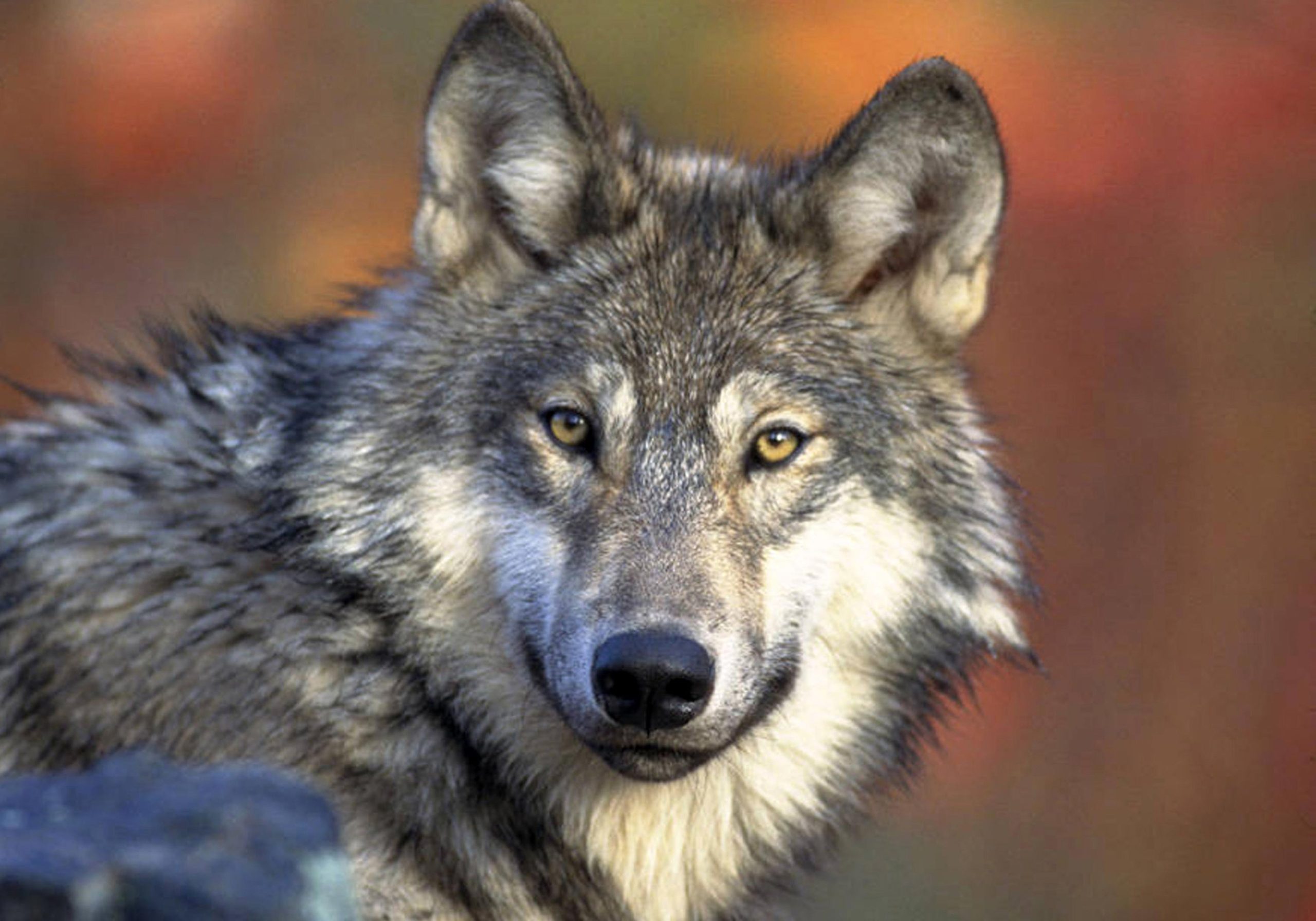
Scientists advocate for the restoration of two keystone species: the gray wolf (pictured here) and the North American beaver. Credit: Gary Kramer / USFWS
As the effects of climate change mount, ecosystem restoration in the US West has garnered significant public attention. This has been bolstered by President Joe Biden’s America the Beautiful plan to conserve 30% of US land and water by 2030. Writing in the journal BioScience, William J. Ripple and 19 colleagues follow up on the Biden plan with a proposal for a “Western Rewilding Network.” It comprises 11 large reserve areas on land already owned by the federal government. The authors advocate for the cessation of livestock grazing on some federal lands, coupled with the restoration of two keystone species: the gray wolf and the North American beaver.
According to the authors, wolves and beavers are renowned for their capacity to produce broad ecosystem effects. For example, they say, “by felling trees and shrubs and building dams, beavers enrich fish habitat, increase water and sediment retention, maintain water flows during drought, provide wet fire breaks, improve water quality, initiate recovery of incised channels, increase carbon sequestration, and generally enhance habitat for many riparian plant and animal species.” Wolves share a similar potential to reshape ecosystems, and “could assist in the natural control of overabundant native ungulates.” This would allow native vegetation to regrow in previously degraded areas.
The rewilding plan would produce profound cascading effects, according to the scientists. They say it could ultimately benefit many of the “92 threatened and endangered species across nine taxonomic groups: five amphibians, five birds, two crustaceans, 22 fishes, 39 flowering plants, five insects, 11 mammals, one reptile, and two snail species.”
A number of costs to their bold initiative are cited by the authors. These include payments to any livestock farmers, who should get just reimbursement for lost grazing allotments on federal lands. Ripple and colleagues argue that these challenges will ultimately prove navigable, in part because meat derived from forage on federal lands accounts for only about 2% of the nation’s production.
Furthermore, say the scientists, the moment is right for “ultra ambitious action,” given the “unprecedented period of converging crises in the American West, including extended drought and water scarcity, extreme heat waves, massive fires triggered at least partly by climate change, and biodiversity loss.”
Reference: “Rewilding the American West” by William J Ripple, Christopher Wolf, Michael K Phillips, Robert L Beschta, John A Vucetich, J Boone Kauffman, Beverly E Law, Aaron J Wirsing, Joanna E Lambert, Elaine Leslie, Carly Vynne, Eric Dinerstein, Reed Noss, George Wuerthner, Dominick A DellaSala, Jeremy T Bruskotter, Michael Paul Nelson, Eileen Crist, Chris Darimont and Daniel M Ashe, 9 August 2022, BioScience.
DOI: 10.1093/biosci/biac069

0 Comments :
Post a Comment